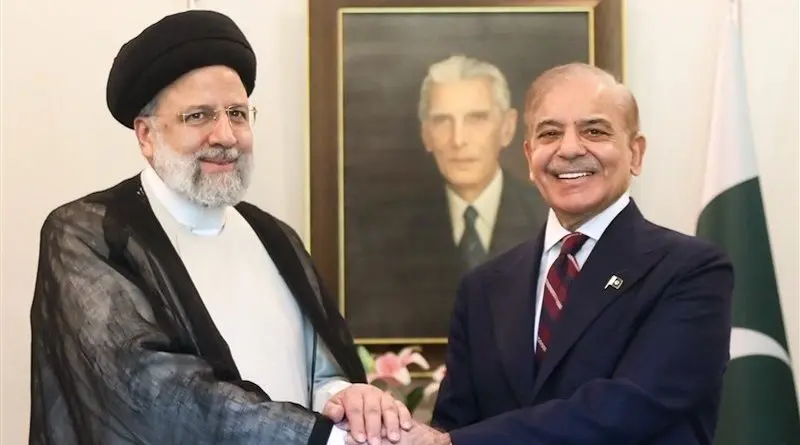Pakistan-Iran Relations Amidst Regional Tensions: A Pathway To Cooperation – OpEd
The recent drone attack by Israel on Iran and subsequent activation of Iran’s air defense missile system have heightened tensions in the region. Amidst these escalating tensions, Iranian President Ebrahim Raisi’s visit to Islamabad offers a glimmer of hope for renewed cooperation and strengthened bilateral ties between Pakistan and Iran. Despite the complex geopolitical landscape, Raisi’s visit has been warmly received by the Pakistani nation, signaling the potential for a new chapter in Pakistan-Iran relations.
Iran’s denial of any damage from the Israeli drone attack underscores the delicate nature of the situation. The attack appears to have been executed with caution to avoid provoking a strong Iranian response. While the U.S. Secretary of State, Anthony Blinken, refrained from confirming the attack, it’s evident that the incident has added a new layer of complexity to the already tense Iran-Israel relationship.
Jordan’s decision to remain neutral in the Israel-Iran tension reflects the broader sentiment in the region, with countries wary of becoming entangled in a potential conflict. Pakistan, keenly observing these developments, has been in touch with Iranian authorities to ensure President Raisi’s visit proceeds as planned, recognizing the importance of maintaining stability and fostering dialogue amidst regional uncertainties.
President Raisi’s visit to Pakistan comes on the heels of an unprecedented border standoff earlier this year between the two countries. The swift escalation, marked by missile strikes and retaliatory actions, was diffused through high-level diplomatic engagement, including a visit by Iranian Foreign Minister Hossein Amir-Abdollahian. Both nations reaffirmed their commitment to restoring diplomatic relations and preventing future escalations.
As a confidence-building measure, Iran conveyed its intention for President Raisi to visit Pakistan post the February 8 elections. This visit serves as an opportunity to build on the progress made in bilateral relations, discuss measures to avoid future incidents, and explore avenues for enhanced cooperation.
One of the key areas of discussion during President Raisi’s visit is expected to be the long-delayed Iran-Pakistan gas pipeline. Despite initial setbacks due to fear of U.S. economic sanctions, Pakistan recently approved the laying of a gas pipeline on its side of the border. While the project has faced opposition from the U.S., Pakistan maintains that it is solely for domestic use and any decision on importing gas will be made once the pipeline is connected to the Iranian network.
The pipeline project symbolizes the potential for mutually beneficial economic cooperation between Pakistan and Iran. By moving forward with this initiative, both countries can demonstrate their commitment to strengthening economic ties and reducing energy deficits, paving the way for broader economic collaboration.
The visit of President Raisi is being closely watched by the international community, particularly by the U.S. and its allies advocating for greater sanctions against Iran. As these countries seek to isolate Iran further, hosting President Raisi presents a test case for Pakistan’s foreign policy.
Pakistan has consistently underscored the urgency of international efforts to prevent the expansion of hostilities in the region. The recent Israeli attack on the Iranian Consulate in Damascus and ongoing violations of international law by Israel have further heightened tensions. Pakistan reiterates its call on the UN Security Council to intervene and hold Israel accountable for its actions, emphasizing the need for restoring and maintaining international peace and security.
In conclusion, President Raisi’s visit to Pakistan amidst regional tensions presents an opportunity to reinvigorate Pakistan-Iran relations and foster greater cooperation. While challenges remain, including the recent Israeli drone attack and ongoing Middle East crisis, the warm reception of President Raisi by the Pakistani nation signifies the potential for a new era of partnership. As Pakistan and Iran navigate these complexities, it is crucial to prioritize dialogue, diplomacy, and mutual respect. By doing so, both nations can build a foundation for long-term cooperation, strengthen economic ties, and contribute to regional stability and prosperity. As the world watches, Pakistan has an opportunity to demonstrate leadership, foster dialogue, and play a constructive role in shaping the future of the region.

